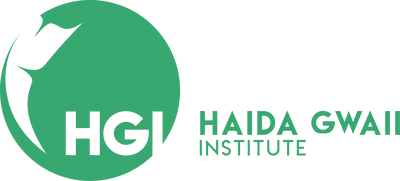Program Structure and Timeline for Completion
The CNR program is offered in two sessions each year, one in the Fall (October to December) and one in the Winter/Spring (February to April). To receive the CNR micro-certificate, students must complete all 3 courses successfully. CNR participants have the flexibility to set their own timeline for completion, within a maximum of two years. The courses may be taken in one session or in different sessions, over a two-year time period. As such, participants may also choose to take individual courses, instead of all three, in which case you will receive an individual course certificate.
The program consists of 9 weeks of learning and 1 one-week breaks between courses. Each course requires approximately 16-20 hours of learner’s time. Overall, the learner’s time commitment to complete all 3 courses in the micro-certificate will be approximately 60 hours.
Courses
- Strategies for Creating Change in Complex Systems
- September 29 – Oct. 17, 2025
- Co-management
- October 20 – November 7, 2025
- Law and Governance
- November 17 – December 5, 2025
Live Session Schedules
- Strategies for Creating Change in Complex Systems: Sept 29 – Oct 17th Fridays 10-11:30am PST
- Co-Management: Oct 20 – Nov 7th Thursdays 10-11:30am PST
- Law & Governance: Nov 17 – Dec 5th Wednesdays 10-11:30am PST
Completion Requirements
To successfully complete the program, students are required to:
- Complete all assignments and learning activities for each course and the overall program.
- Achieve a minimum score of 50% or higher on each assignment within a course.
Failure to meet these requirements will result in non-qualification for course and program completion.
Timeline to Completion
CNR participants have the flexibility to set their own timeline for completion, within a maximum of two years.
IMPORTANT: Students who receive StrongerBC future skills grant funding must complete the program within a single offering.
Course Descriptions
Strategies for Creating Change in Complex Systems
This course supports participants in building professional and personal skills and competencies to work more effectively at the interface of Indigenous and Western knowledge systems in a world characterized by exponential complexity, uncertainty and polarization and “wicked” global challenges such as climate change, biodiversity loss and global inequalities. It aims to equip people to identify and analyze conscious and unconscious patterns of thinking and behaviour that affect the quality of engagement and relationship building with Indigenous communities and individuals; as well as to reduce the weight of emotional and cognitive labour that is often borne by Indigenous peoples in this work and to clear the space for relationship building grounded on trust, respect, consent, reciprocity and accountability. These competencies are becoming exponentially more important in ethical and accountable natural resources management. The course will invite professionals and practitioners from diverse sectors to engage in a challenging process of (un)learning to expand collective capacities to create productive spaces for institutional and relational change. This course is informed by recent research, and practice, emerging from complexity and systems approaches, social innovation, and Indigenous and decolonial studies. The course is grounded on the Calls to Action of the Truth and Reconciliation Commission (TRC) and the United Nations Declaration on the Rights of Indigenous Peoples (UNDRIP).
Indigenous and non-Indigenous individuals will benefit differently from this course. Non-Indigenous individuals will have a chance to examine their assumptions and expectations in relation to engagements with Indigenous knowledge systems in contexts of uneven relations of power and to build capacity and resiliency to work through the complexities and difficulties of co-management. Indigenous individuals will have a chance to unpack all-too-common sources of frustration and burnout in work in non-Indigenous contexts and to develop strategies to build stamina and improve wellbeing. Although the course materials are the same for all participants, tutorials may be separate for Indigenous and non-Indigenous subgroups. This course prepares participants for more intellectually and relationally rigorous encounters with Indigenous knowledge in the two other courses in the micro-certificate program.
Co-management
As Crown governments work to advance reconciliation and renew relationships with Indigenous peoples, co-management has become an area of increasing interest. Co-management, the shared administration of natural resources and areas by Crown and Indigenous governments brings together multiple perspectives, such as western science and traditional knowledge, and can help to build more durable solutions to resource management conflicts. In 1993, the landmark Gwaii Haanas Agreement was signed, which committed Canada and the Haida Nation to cooperative management of Gwaii Haanas National Park Reserve and Haida Heritage Site. Over the following decades, co-management arrangements in Haida Gwaii have advanced to include several other marine and terrestrial resources and protected areas. This makes Haida Gwaii an ideal case study in co-management. This online professional development program is an opportunity for representatives from diverse sectors such as Indigenous, federal, provincial and municipal governments as well as industry and non-government organizations, to develop the understanding, tools and strategies required to begin and/or advance co-management initiatives, based on experiences in Haida Gwaii.
Law & Governance
Over the past two decades in Canada, landmark court decisions have mandated free, prior and informed consent and the duty to consult and accommodate; the Truth and Reconciliation Commission (TRC) developed a set of Calls to Action; and, the United Nations Declaration on the Rights of Indigenous Peoples (UNDRIP) was adopted with the intention for all nations to implement it. In this context, it has become increasingly important for both Indigenous and non-Indigenous people of Canada to have a working knowledge and understanding of Aboriginal rights, laws and policies, and how they apply to their work in relation to Indigenous Peoples and communities, territories, businesses and governments. The precedent-setting agreements between the Haida Nation and the federal and provincial governments in natural resource management contexts, as well as the ongoing Haida title case, serve as exemplary backdrops for this program. Participants will learn how relationships, processes and practices on Haida Gwaii and elsewhere are advancing reconciliation in Canada.


